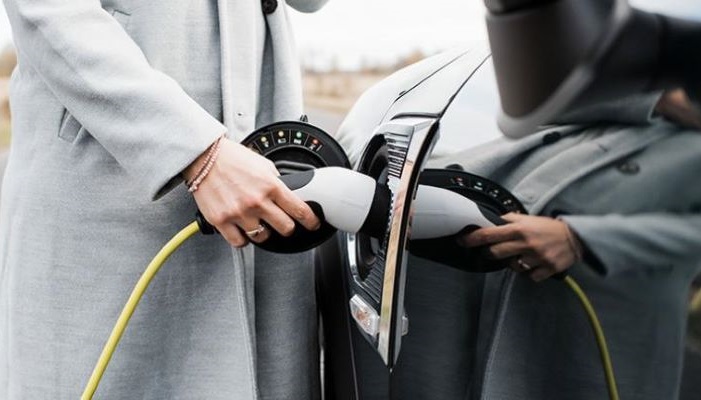Education
Oxygen ‘Holes’ Could Hold the Key to Higher Performing EV Batteries

Scientists have made a breakthrough in understanding and overcoming the challenges associated with nickel-rich materials used in lithium-ion batteries.
Nickel is already used in lithium-ion batteries, but increasing the proportion of nickel could significantly improve battery energy density, making them especially suitable for electric vehicles and grid-scale storage. However, practical applications for these materials have been limited by structural instability and the tendency to lose oxygen atoms, which cause battery degradation and failure.
The researchers, led by the University of Cambridge and the University of Birmingham, found that ‘oxygen hole’ formation – where an oxygen ion loses an electron – plays a crucial role in the degradation of nickel-rich battery materials. These oxygen holes accelerate the release of oxygen that can further degrade the battery’s cathode, one of its two electrodes. Their results are reported in the journal Joule.
Using a set of computational techniques on UK regional supercomputers, the researchers examined the behaviour of nickel-rich cathodes as they charged. They found that during charging, the oxygen in the material undergoes changes while the nickel charge remains essentially unchanged.
“We found that the charge of the nickel ions remains around +2, regardless of whether it’s in its charged or discharged form,” said Professor Andrew J. Morris, from the University of Birmingham, who co-led the research. “At the same time, the charge of the oxygen varies from -1.5 to about -1.
“This is unusual, the conventional model assumes that the oxygen remains at -2 throughout charging, but these changes show that the oxygen is not very stable, and we have found a pathway for it to leave the nickel-rich cathode.”
The researchers compared their calculations with experimental data and found that their results aligned well with what was observed. They proposed a mechanism for how oxygen is lost during this process, involving the combination of oxygen radicals to form a peroxide ion, which is then converted into oxygen gas, leaving vacancies in the material. This process releases energy and forms singlet oxygen, a highly reactive form of oxygen.
“Potentially, by adding compounds that shift the electrochemical reactions from oxygen more to the transition metals, especially at the surface of the battery materials, we can prevent the formation of singlet oxygen,” said first author Dr Annalena Genreith-Schriever from the Yusuf Hamied Department of Chemistry. “This will enhance the stability and longevity of these lithium-ion batteries, paving the way for more efficient and reliable energy storage systems.”
Lithium-ion batteries are widely used for various applications because of their high energy density and rechargeability, but challenges associated with the stability of cathode materials have hindered their overall performance and lifespan.
The research was supported in part by the Faraday Institution, the UK’s flagship battery research programme.
Source – Cambridge
-

 Auto1 year ago
Auto1 year agoBentley Breaks Ground On New Launch Quality Centre And Engineering Technical Centre
-

 Health2 years ago
Health2 years agoOracle Helps Healthcare Providers Improve Patient Care with Better Financial And Operational Planning
-

 Technology1 year ago
Technology1 year agoSAP Expands 25-Year Partnership with Lockheed Martin
-

 Technology1 year ago
Technology1 year agoNew Global Study: 1 in 2 Executives Experiencing “Resiliency Gap”
-

 Auto8 months ago
Auto8 months agoHonda Marine Debuts All-New BF350 Outboard Company’s First V8 Motor Available Commercially, Flagship Model Offers Premium Power and Unparalleled Performance for Extraordinary Boating Experiences


















